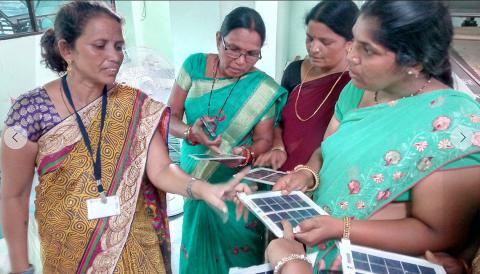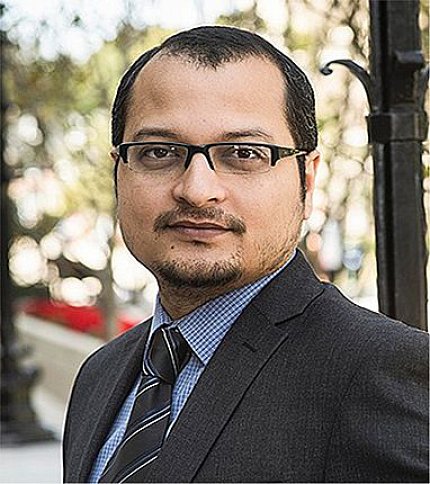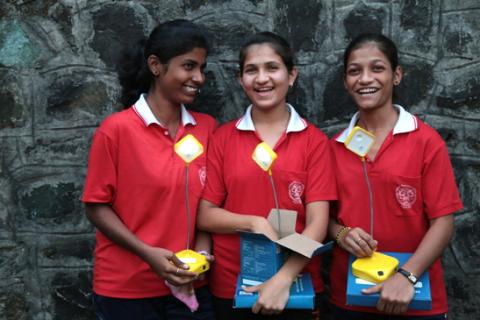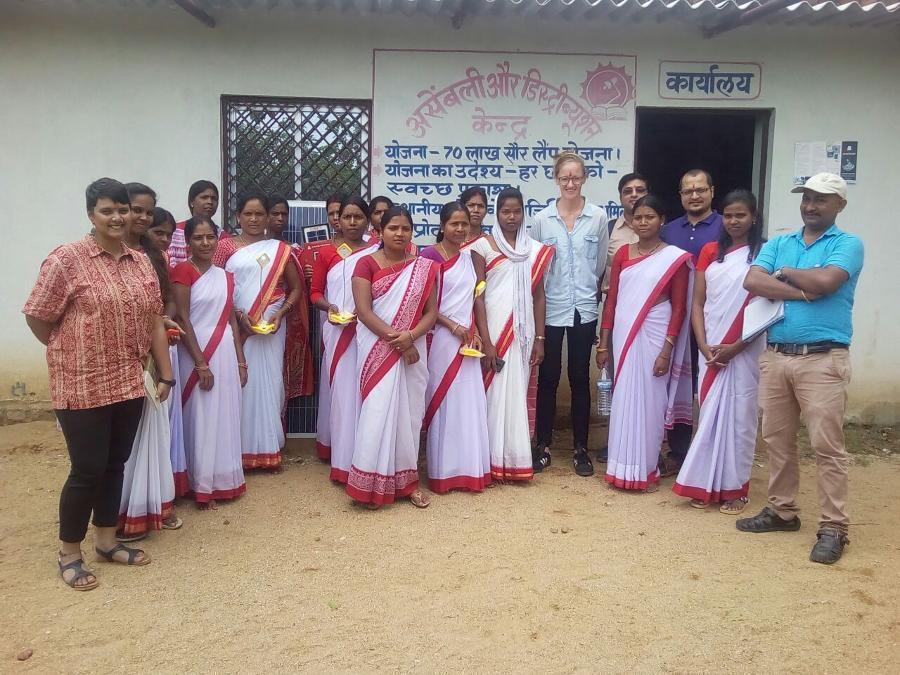Scholar Studies Social Factors
Is Women’s Empowerment a Key to Climate Adaptation?

Photo: Courtesy SOULSIITBOMBAY
Adapting to climate change involves effort from all parts of society, from large-scale down to the individual level. The NIH Climate Change and Health Initiative seeks to reduce health threats from climate change across the lifespan and build health resilience in individuals, communities and nations around the world, especially among those at highest risk. The initiative includes eight climate and health scholars, who work with NIH to share knowledge and help build capacity for conducting climate-related health research.
Dr. Praveen Kumar, an NIH climate and health scholar at Boston College, recently gave a virtual lecture titled “Environmental Justice and Well-Being: Centering Women’s Empowerment to Improve Energy Access Among Poor Communities of Rural India.”

The NIH Climate Action plan acknowledges age and gender as key social and behavioral factors that influence susceptibility to climate-led impacts. Research shows climate change affects women and girls disproportionately in comparison to men and boys. Kumar has devised a method of individual-level climate adaptation strategies that also empower women.
“Women’s empowerment is key to changing behavior and building capacity for climate adaptation,” he said. He studies implementation science by evaluating methods and strategies that enable the uptake of evidence-based practice and research.
Kumar’s case study focused on rural India, where many people do not have consistent access to electricity. He partnered with the Indian Institute of Technology Bombay on the SoULS program, also known as the Solar Urja (energy) through Localization for Sustainability Program.
SoULS teaches women to build, repair and sell solar-powered lamps, imparting marketable skills and providing a sustainable solution to inconsistent electricity access.
So far, SoULS has taught 7,436 women to assemble solar lamps. Of that number, 1,896 also received entrepreneurship training and there are more than 800 solar shops in practice today.
Aside from the women learning technical and business skills, Kumar also saw a “transformational change” in the women’s assertiveness. He measured assertiveness, decision-making and satisfaction to gauge the participants’ sense of empowerment.
Decision-making also increased as the women learned new skills, Kumar observed. Decision-making and assertiveness are also translatable to home life and can enable women to have more say regarding factors like childcare and finances, he noted.
Interestingly, satisfaction seemed to decrease as the study went on.

Photo: Courtesy SOULSIITBOMBAY
In interviews with participants, Kumar learned that women often became less content as they learned more skills and started businesses. From the women’s answers, he posited “they now understand what they can achieve and they have more anxiety over it, because the social structure around them has not really been helping them succeed.”
Low- and middle-income countries (LMICs) contribute the least to climate change, but they often suffer disproportionately from climate-related weather events compared to countries with the highest carbon emissions.
Kumar noted that the climate crisis affects women and girls disproportionately and exacerbates existing gender inequalities. Gender-based violence often increases directly after climate-led disasters, for example, and Kumar cited a study that showed how empowering women helps decrease gender-based violence and intimate-partner violence after such events.
As an NIH climate and health scholar, Kumar is now conducting research with his host institute/center, Fogarty International Center (FIC). He and the FIC Center for Global Health Strategies are inviting researchers to participate in his new case study, “Lessons from the field: Case studies to advance research on climate adaptations and their impact on public health.”
In this study, Kumar seeks to identify and understand current and historical adaptation responses in LMICs that address deteriorating health outcomes due to climate-led stressors. He hopes the knowledge collected by the case study will strengthen the evidence base around climate change adaptation and help identify research priorities and future research needs.
To learn more about the NIH Climate Change and Health Initiative, visit https://www.nih.gov/climateandhealth.

